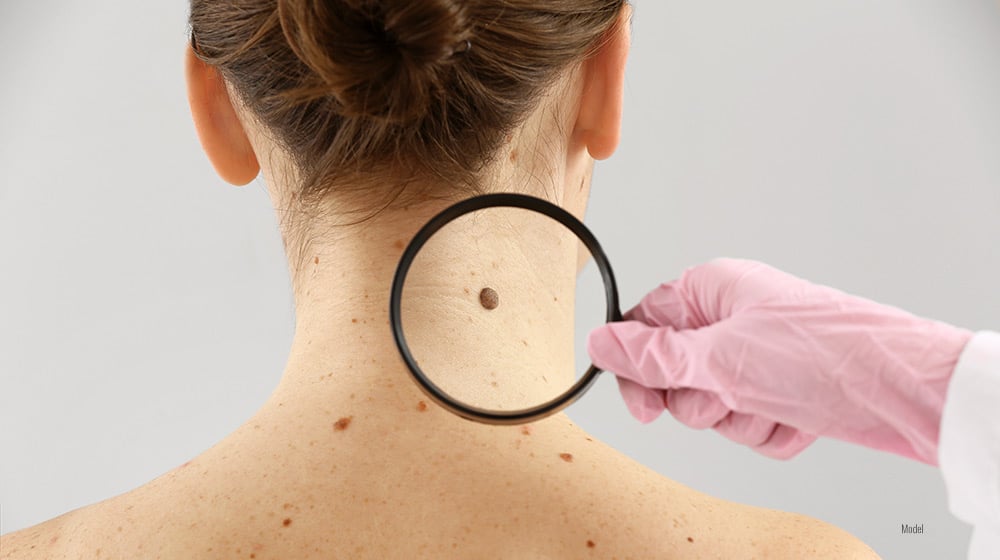September 06, 2024 | 4 minute read

Melanoma is a serious skin cancer often regarded as one of the most dangerous forms. If not treated in time, it can spread to other body areas. Early detection is key for removing melanoma. This blog discusses how melanoma can be surgically removed when caught early on while also emphasizing the importance of checking your moles and getting a skin cancer screening.
Understanding Melanoma
The topic of skin cancer can be difficult to discuss. Many people may know that wearing sunscreen and clothing that covers the body are steps that can be taken to avoid developing skin cancer. Yet, not as many understand the severity of skin cancer. Melanoma, in particular, is an important condition to be informed about since it is typically regarded as the deadliest form of skin cancer.
The reason melanoma is so deadly is due to its ability to spread to other parts of the body. Once the skin cancer spreads, treatment methods are more invasive, and it can be more difficult, and in some cases impossible, to completely remove all of the melanoma. It can also be challenging to detect melanoma initially since it often appears as an abnormal mole and can develop in existing moles.
Does Melanoma Ever Go Away?
If melanoma is caught early on, it can usually be removed through surgery. If this is done at an early stage, then the patient may be fully cured of melanoma after it is removed. However, for some people, the cancer comes back and becomes a condition that they have to live with. After the initial melanoma treatment, patients typically have follow-up appointments scheduled as a preventative measure to monitor the skin if the melanoma comes back. Patients with reoccurring melanoma may receive a treatment plan that includes more regular treatment sessions for managing the cancer.
What Is Excision Surgery?
For cases of early melanoma, many patients see success with excision surgery. This procedure involves a physician assistant surgically cutting the melanoma tumor from the body and removing some of the surrounding skin from the area. The removed skin will be checked to see if any cancer cells remain; if there are cancer cells in this skin, an additional skin sample may be taken.
How Long Does It Take for Melanoma to Spread?
Every person’s body responds differently to melanoma, which makes it difficult to anticipate just how quickly it will spread. Some patients with melanoma can experience the cancer spreading a dangerous amount in as little as six weeks. If the melanoma is not treated in time, it could be a matter of life or death. It is better to err on the safe side and get any abnormal moles checked as soon as possible.
How Can Melanoma Be Caught Early?
The earlier melanoma is caught, the better. But how can patients be proactive about catching and treating melanoma?
Regularly checking your skin and examining your moles is one of the best ways to familiarize yourself with your moles and ensure you notice any changes. We recommend that people check their moles and skin at least once a month so they can be up to date on any changes.
Additionally, a skin cancer screening is essential for maintaining healthy skin and detecting dangerous conditions early. During a skin cancer screening, a medical professional examines the surfaces of your skin to detect cancer signs. If your specialist suspects any abnormalities, they may take a biopsy for further examination. People who are more susceptible to developing skin cancer may need to get these screenings more regularly as a preventative measure.
Want to Learn More About Melanoma Treatment in Scottsdale, AZ?
Taking action for your skin health is one of the best ways to prevent skin cancer. To learn more about melanoma and available treatment options in Scottsdale, AZ, call the Skin & Cancer Center of Scottsdale at (480) 596-1110 or complete our online contact form.

